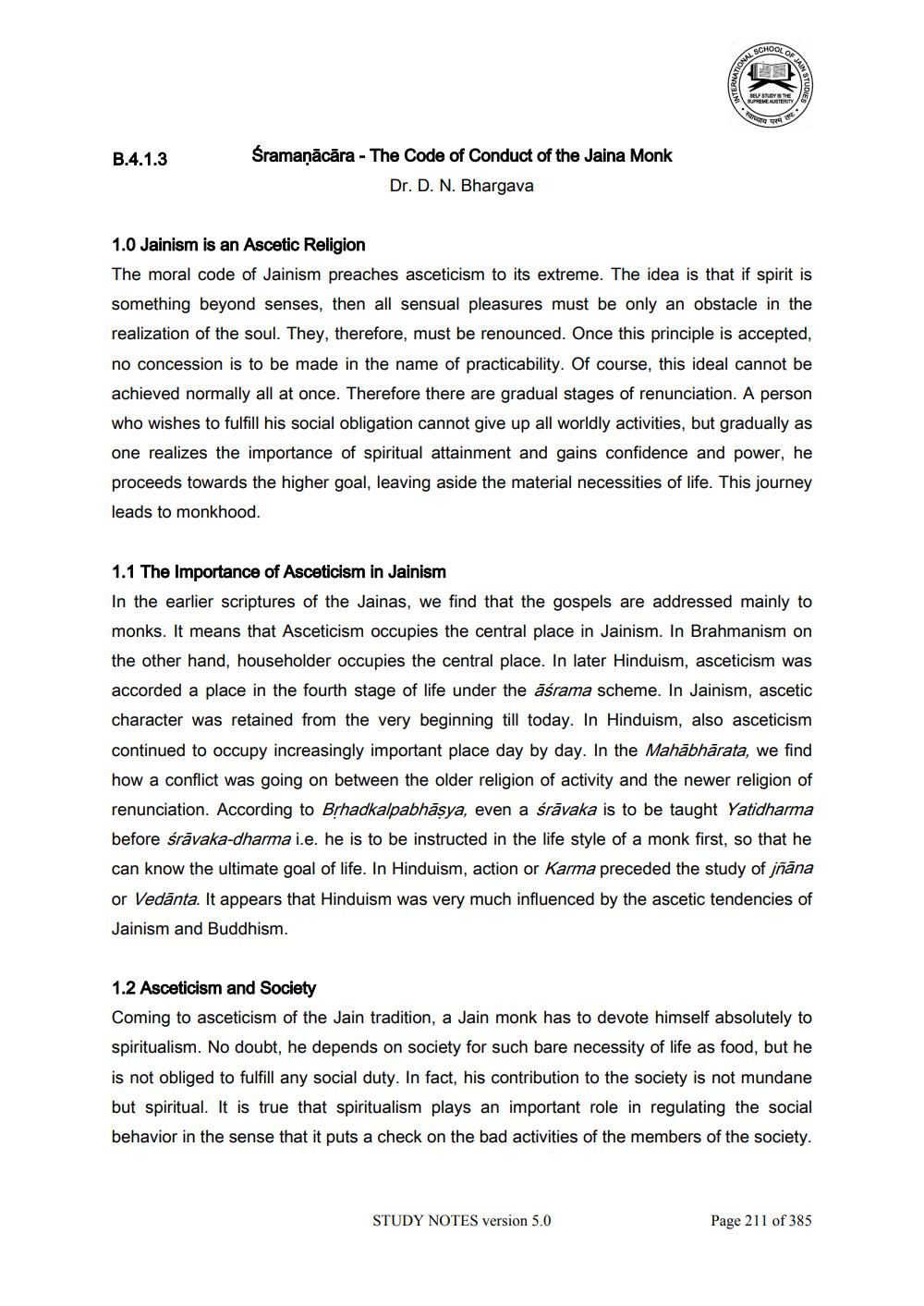________________
B.4.1.3
Śramanācāra - The Code of Conduct of the Jaina Monk
Dr. D. N. Bhargava
1.0 Jainism is an Ascetic Religion The moral code of Jainism preaches asceticism to its extreme. The idea is that if spirit is something beyond senses, then all sensual pleasures must be only an obstacle in the realization of the soul. They, therefore, must be renounced. Once this principle is accepted, no concession is to be made in the name of practicability. Of course, this ideal cannot be achieved normally all at once. Therefore there are gradual stages of renunciation. A person who wishes to fulfill his social obligation cannot give up all worldly activities, but gradually as one realizes the importance of spiritual attainment and gains confidence and power, he proceeds towards the higher goal, leaving aside the material necessities of life. This journey leads to monkhood.
1.1 The Importance of Asceticism in Jainism In the earlier scriptures of the Jainas, we find that the gospels are addressed mainly to monks. It means that Asceticism occupies the central place in Jainism. In Brahmanism on the other hand, householder occupies the central place. In later Hinduism, asceticism was accorded a place in the fourth stage of life under the aśrama scheme. In Jainism, ascetic character was retained from the very beginning till today. In Hinduism, also asceticism continued to occupy increasingly important place day by day. In the Mahābhārata, we find how a conflict was going on between the older religion of activity and the newer religion of renunciation. According to Brhadkalpabhāsya, even a śrāvaka is to be taught Yatidharma before śrāvaka-dharma i.e. he is to be instructed in the life style of a monk first, so that he can know the ultimate goal of life. In Hinduism, action or Karma preceded the study of jñāna or Vedānta. It appears that Hinduism was very much influenced by the ascetic tendencies of Jainism and Buddhism.
1.2 Asceticism and Society Coming to asceticism of the Jain tradition, a Jain monk has to devote himself absolutely to spiritualism. No doubt, he depends on society for such bare necessity of life as food, but he is not obliged to fulfill any social duty. In fact, his contribution to the society is not mundane but spiritual. It is true that spiritualism plays an important role in regulating the social behavior in the sense that it puts a check on the bad activities of the members of the society.
STUDY NOTES version 5.0
Page 211 of 385




